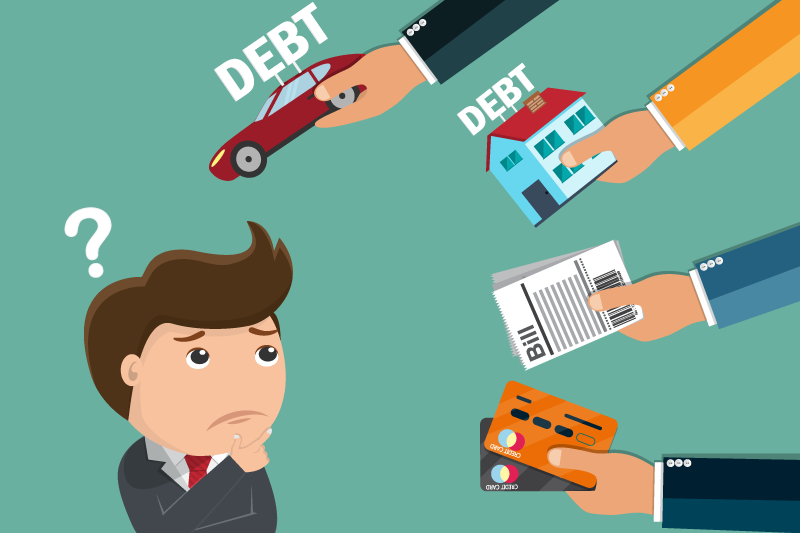It is easy to feel overwhelmed, frustrated, and defeated when your debt is increasing faster than you can pay it. With high interest rates and large balances, you may even wonder why you bother making payments at all when your monthly payment does not even make a dent in the amount you owe. Getting out of debt can be a long journey, though not an impossible feat. So, where do you start if your journey to financial health starts deep in debt? Take it one step at a time. Here are a few steps to guide you in digging your way out from the weight of substantial debt.
Know your money: how much do you earn and how much do you owe?
Before you can tackle your debt, you must understand your overall finances – specifically, how much money you bring in each month compared to how much money needs to go out for bills, groceries, and other necessities. The simplest way to do this is to create a budget that lists your sources of income and all your monthly expenses including debt payments. This will give you a bird’s eye view of how much money you have available to work with and where you can adjust your expenses to increase the amount of money you can attribute to your debt payments each month. If you already have a budget, revisit it, and look for expenses you can eliminate or reduce. The more money you can allocate toward debt payments, the quicker you will get out of debt and into financial freedom.
Come up with a plan for payoffs: treat every individual debt as a task that you can check off your list with each balance you pay off
Lots of people have goals, but it is the people who have a plan of how they will accomplish their goals who are successful. If your goal is to get out of debt, you must have a plan of how you are going to do it. Whether you decide to start with the account with the highest interest rate, the account with the highest balance, or prioritize another way, focusing on paying off one debt at a time will make your overwhelming debt seem manageable. This does not mean you will only make payments on one account at a time. You must continue to make timely payments on all open accounts. However, if you can throw a little extra money toward one account at a time, it will help you to reduce the balance of that account a little faster, and you will simply repeat the process with each account until all debt is paid off.
Do not neglect your emergency fund: have the financial security you need to handle an emergency without having to sacrifice your debt payments
While this may seem counterproductive, it is important to establish and/or build up your emergency savings fund even while you are prioritizing paying off debt. Sure, you could use the money you would deposit to this account to make an extra payment toward your debt instead, but without an emergency savings fund to cover unexpected, emergency expenses, you could be setting yourself up to dive even deeper into debt. If you have a well-established emergency savings plan, you will be able to cover the cost of those emergency car repairs or unexpected hospital visits without having to skip a debt payment or take out more debt to cover the expense.
Seek help if you need it: money management resources are out there – use them!
There is no shame in working with a financial advisor or credit counseling agency to help you develop the right strategy for your financial situation. In some circumstances, debt consolidation or debt settlement is the best path. For others, bankruptcy might be the right move. It is important to do your research to ensure you are making healthy progress toward getting out of debt based on your unique circumstances. A credit counselor can help you determine the course of action to take that is the best avenue for you to pursue in your journey to being debt-free.


